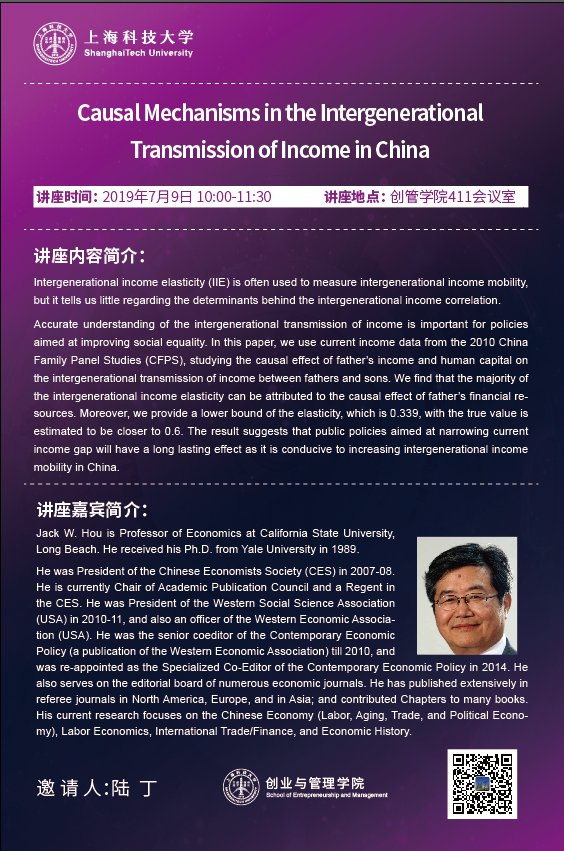讲座时间:2019年7月9日 上午10:00 - 11:30
讲座地点:创管学院411会议室
讲座嘉宾:Jack Hou
邀请人:陆丁
讲座内容简介:
Intergenerational income elasticity (IIE) is often used to measure intergenerational income mobility, but it tells us little regarding the determinants behind the intergenerational income correlation.
Accurate understanding of the intergenerational transmission of income is important for policies aimed at improving social equality. In this paper, we use current income data from the 2010 China Family Panel Studies (CFPS), studying the causal effect of father’s income and human capital on the intergenerational transmission of income between fathers and sons. We find that the majority of the intergenerational income elasticity can be attributed to the causal effect of father’s financial resources. Moreover, we provide a lower bound of the elasticity, which is 0.339, with the true value is estimated to be closer to 0.6. The result suggests that public policies aimed at narrowing current income gap will have a long lasting effect as it is conducive to increasing intergenerational income mobility in China.
讲座嘉宾简介:
Jack W. Hou is Professor of Economics at California State University, Long Beach. He received his Ph.D. from Yale University in 1989.
He was President of the Chinese Economists Society (CES) in 2007-08. He is currently Chair of Academic Publication Council and a Regent in the CES. He was President of the Western Social Science Association (USA) in 2010-11, and also an officer of the Western Economic Association (USA). He was the senior coeditor of the Contemporary Economic Policy (a publication of the Western Economic Association) till 2010, and was re-appointed as the Specialized Co-Editor of the Contemporary Economic Policy in 2014. He also serves on the editorial board of numerous economic journals. He has published extensively in referee journals in North America, Europe, and in Asia; and contributed Chapters to many books. His current research focuses on the Chinese Economy (Labor, Aging, Trade, and Political Economy), Labor Economics, International Trade/Finance, and Economic History.




